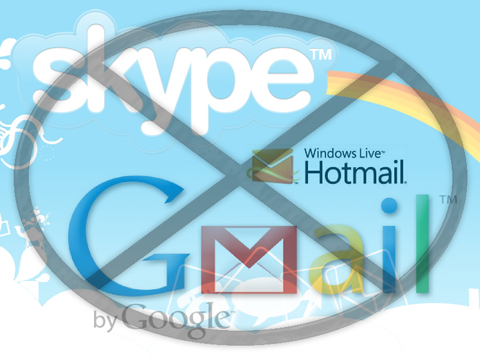This article is part of the Digital Freedom and Control Project produced exclusively for the World Policy Journal by students from the Columbia University Graduate School of Journalism.
 By Julia Pyper
By Julia Pyper
Sophisticated hacker attacks have shut down Russia’s largest blogging and social network platform four times in the last month.
The attack, called a Distributed Denial-of-Service (DDoS), against LiveJournal affected nearly 5 million blogs. This move has political overtones in a country where information channels are tightly controlled, and the Internet has become an important outlet for freedom of expression. LiveJournal is not the only website allowing for political discussions in Russia, but it is home to a large number of blogs many of which tackle political issues. As a result, the crash has revealed the vulnerabilities of online platforms for political communication.
Blogger Yuri Pronko wrote, “It should be clear to everyone: an attack on LJ [LiveJournal] is an attack on democracy and freedom of speech in Russia!”
The Eurasia Daily Monitor, a publication of the Washington D.C. based think-tank The Jamestown Foundation, reported, “In Russia, the worldwide web has become a platform for sharp political and social discussions, a single important source of uncensored news, and an effective instrument of self-organization for various politically and socially active groups among the population.” A recent study by the Harvard Berkman Center for Internet and Society also concluded that the political blogosphere in Russia is “a free and open space for Russians of all political stripes.”
LiveJournal administration posted a statement on its website saying, “These attacks are against multiple journals worldwide, several of which are political in nature. LiveJournal believes strongly in the ideal of freedom of expression, and we're working very hard to ensure that users around the world have a place where their voices can be heard.” The company announced that it is installing new programs to help thwart future shutdowns.
The DDoS assault was a complex strike, which overloaded the LiveJournal servers with online traffic and was likely carried out by multiple network operators. The Moscow Times reported that hackers used computers infected with malware (malicious software) based in Asia and Eastern Europe to cause the crash. Many theories on who initiated the DDoS attacks have been circulating on the web. One view is that the crash was organized by competitors aimed at discrediting LiveJournal to encourage bloggers to use other platforms. Others say the attackers were trying to curry favor with the government.
Some believe the sophisticated attack could only have been conducted with help from the government itself, perhaps in an effort to censor blogger Alexey Navalny, who has recently exposed a number of controversial corruption cases in Russia, including an exposé on the theft of $4 billion from the state-owned oil company, Transneft. In an interview with the Associated Press, Dmitry Muratov, the editor of Novaya Gazeta, the leading opposition newspaper in Russia, put forward the theory that the government was testing its Internet control capabilities in anticipation of the approaching 2011 Prime-Minister elections and 2012 presidential elections in Russia.
Novaya Gazeta was also the target of what its editors called, “intense attack of unprecedented scope,” which caused its site to crash. Nedezhda Prusenkova, a spokesperson for Novaya Gazetasaid the paper might move its servers overseas for more protection.
Other independent or semi-independent websites, such as kommersant.ru and vedomosti.ru have also come under attack. Russia is on the list of countries “under surveillance” by the organization Reporters Without Borders, because of regional restrictions to online information and other subtle methods of control. Freedom House came to a similar conclusion on in its “Freedom on the Net” report of 2011 in which authors concluded that Russia’s status was “partly free” but that it is in the “at-risk zone.” Russia ranked 22 out of 37 countries in terms of Internet freedom, slightly worse than Rwanda and slightly better off than Egypt.
Nevertheless, many members of the active online community do not assume the LiveJournal attack was the result of outright government censorship. Although the Internet attacks are widely seen as affecting the freedom of speech online, no direct evidence has come to light connecting them to the government.
“It’s difficult to see where this might be coming from, because everybody across the political spectrum uses LiveJournal and depends on it,” Rustem Agadamov, a popular Russian blogger, told the Christian Science Monitor. “But it’s obviously not simple net hooliganism, because this kind of sustained attack is very expensive and difficult to mount. Nobody's going to waste big resources to no purpose.”
President Dmitry Medvedev has publicly condemned the attacks. His personal blog is hosted on LiveJournal (in addition to appearing on the Kremlin website) and he has ordered an investigation of the incident. He wrote on his blog, once it was restored, that the actions were “outrageous and illegal.”
Other official sectors in the Russian state, however, do not share the president’s benign views of the Internet. On April 8, the Russian Federal Security Service (FSB) announced that Skype, Gmail and Hotmail should be banned. In a government meeting, FSB communications representative, Alexander Andreyechkin said, “Uncontrolled usage of these services may lead to massive threat to Russia's security.” Russian communications minister, Ilya Massukh added that the programs presented a risk because “security authorities cannot access them,” due to their foreign-made encryption codes.
A Kremlin government official, however, strongly rejected the FSB position, stating that the intelligence agency did not control Internet technology, according to the Russian news agency RIA Novosti. The Security Service ultimately released new statements retracting its demand to limit use of these online social services.
The episode led to speculation of a rift forming between Prime Minister Vladimir Putin, a former member of the Secret Service, and the forward-looking tech-savvy President Medvedev. A spokesperson for Putin defended the FSB announcement as “well-reasoned.”
The FSB’s actions were preceded by an initiative put forward a month earlier, on March 15, by Roskomnadzor, Russia’s federal supervisor of telecommunications, to develop software that would monitor online content for subject matter deemed illegal according to Russian law. This would include references to terrorism, classified security information, pornography, slander of government officials, threats to the constitutional order and threats to the freedom of choice during elections.
Karina Alexanyan, a researcher and analyst at Harvard University’s Berkman Internet and Democracy Russia Project,cast doubt on conspiratorial theories that the government pulled the plug on LiveJournal and that it intends to severely censor other online communications programs in the run up to the coming elections.
“Going into a Cold War trope is really easy,” said Alexanyan. “Everyone’s sitting around waiting for authoritarian Russia to show up, and when it does you say, ‘OK, there it is! I know what to do with you.’ When you don’t see it clamping down, you think, ‘why aren’t you?’”
Alexanyan helped produce the Berkman Center study, entitled, “Public Discourse in the Russian Blogosphere: Mapping RuNet Politics and Mobilization.” In this study, researchers found little evidence of direct Internet filtration. Public affairs bloggers cover a broad spectrum of attitudes and agendas, including those affiliated with offline political and social movements. According to the Berkman report, “the majority of Russian bloggers appear to write from a more independent, non-aligned perspective.” It also added: “They discuss politics with less commitment to any defined collective position.”
Internet penetration in Russia is expanding but still sits at 40 percent (in contrast to 75 percent in the U.S.). A large portion of Internet users are urban elite who use the web for cultural blogging and social networking.
When political outcries in Russia’s online world have led to real action, they have largely been in response to specific flashpoints of corruption and abuse of authority, and not part of broader political action. For instance, in 2009 police major Alexey Dymovsky posted videos on YouTube demanding that Putin end corruption within the police force. He lost his job, but paved the way for an onslaught of videos appealing to the Kremlin to stop the abuse of power on local levels. In another case, bloggers Gregory Asmolov and Alexey Sidorenko used the crowd-sourcing platform Ushahidi to create Russian-Fires.ru, which located where people needed assistance during the 2010 wildfires in Russia. The project was at once life saving and award winning, but also responded to widespread criticism of the government’s lack of action.
“You don’t want to over exaggerate the Internet audience, they are a small group of people online and they’re mostly being social,” said Alexanyan. “I think that if you’re looking for activism and social action, the price of bread will tell you a lot more than how free the Internet is.” But speaking about the online community, she added, “It will be interesting to see what happens online, since they are going to be the ones creating change if anyone is.”
*****
Julia Pyper has a masters degree from the Columbia University Graduate School of Journalism. She has worked for numerous publications in Canada and is a fellow at ClimateWire in Washington D.C.
Digital Freedom and Control
Russia and Asia
Latin America
Middle East
